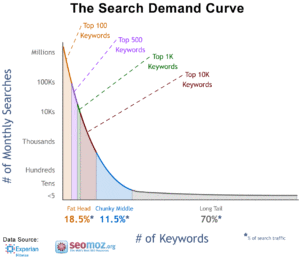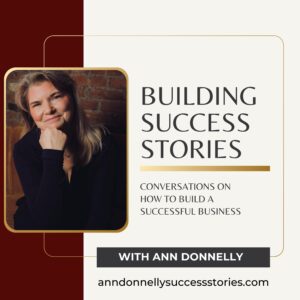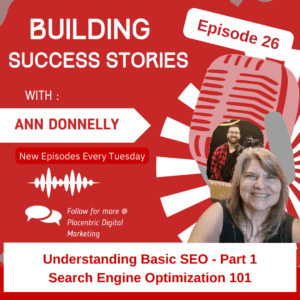
Do you outsource web development, maintenance, social media management, etc.? Understanding basic SEO will help you know what you are paying for and determine whether the provider has implemented the agreed-upon services. You can also confidently develop and deliver optimized content to your website and other channels.
In Episodes 26 and 27 of Building Success Stories, Producer Seth and I discuss the basics of Search Engine Optimization (SEO), a process for maximizing the traffic to your website, social media profiles, and any online “properties” you have from organic (not paid) search engine results.
Listen to this episode to learn what SEO is, how it increases traffic to your website, and how SEO has and hasn’t changed since the days of digital marketing in the late 1990s.
You will also learn about “keyphrases” and how to research and select the keyphrases to target on your digital marketing channels.
In Episode 27, we will discuss how to use these keyphrases to optimize your website and other digital channels, giving you a better understanding of basic SEO.
Get more insights!!! Listen to this episode in the player above or search for “Building Success Stories with Ann Donnelly” on your favorite podcast platform. Click here for a list of podcast apps where you can listen to our podcast.
If you enjoyed this episode and found the information useful:
📍Subscribe to this podcast and share it with your friends and colleagues.
📍Click here to subscribe to the Next Level Success Newsletter, a weekly email for ambitious individuals looking to take their businesses to the next level with insights, advice, and how-tos from Ann Donnelly’s 40 years of business and marketing experience.
Read on for more about the basics of SEO.
Understanding Basic SEO (Part 1) – Search Engine Optimization 101
Search Engine Optimization, also known as SEO, is a process for maximizing the traffic to your website, social media profiles, and any online “properties” you have from organic (not paid) search engine results.
Search engine algorithms, the formulas used to determine the order of search results, are not fully revealed to the public to prevent web developers from manipulating the system. However, Google, the most widely used search engine, plays a collaborative role by providing significant advice and tools to track how well-optimized a website is. Moreover, the SEO community, including many search engine optimization specialists, also known as SEOs, debate and share their insights and best practices on social media and various websites. This collaborative approach ensures that everyone can benefit from the evolving SEO landscape.
I started web development around the time Google started up. There were few content management systems (CMSs) then, so I coded by hand. My technique of coding very “cleanly” and including content relevant to my audience, thereby using wording people were searching on, meant that these websites ranked well for relevant phrases, known in SEO as “keyphrases” or “keywords.” Many of the techniques I used then, about 25 years ago, and developed in the early years of SEO, are still important today. I’ve maintained my knowledge of SEO through the years, including the more technical aspects and optimizing for mobile devices, which have become more and more critical over the years.
Some web developers feel that SEO is a waste of time because:
- Large corporate and aggregation websites (like Booking.com) dominate the search engine results for the most popular phrases.
- Paid results are prominent at the top of search results, so some feel you are better off spending time (and money) on pay-per-click (PPC) Adwords campaigns.
- Google increasingly features information it has gathered at the top of its search engine results pages (SERPs), making the organic search results less prominent. These SERP features include featured snippets, “people also ask,” and image and video carousels.
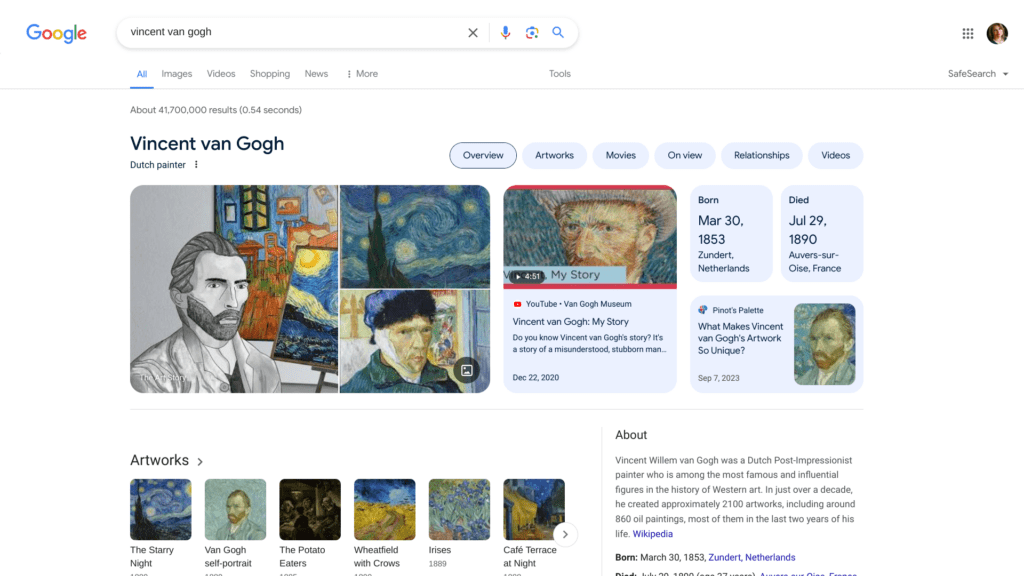
I agree with the rest of the web development community that SEO is still important for many reasons, including:
- While the larger websites dominate search results for the most popular pages, smaller websites can still do well on more specific, niche, or location-based phrases that will bring even more relevant traffic to their sites. These are also called “long tail” keyphrases, a reference to the shape of a line chart showing the number of searches over time.
- PPC Adwords campaigns can be very costly, especially if not done strategically. A website optimized for search results will likely give better results once a visitor has come to the website from a paid listing. Many aspects of search engine optimization are also relevant to conversion rate optimization.
- Search engines are more likely to include content from a well-optimized site in the SERP features at the top of results and in searches via voice-activated devices like Alexa, Siri, and Google Assistant.
How to Optimize Your Online Properties to Maximize Results from Organic Searches
- Keyphrase Research–Identify the phrases that are likely to be used by your target audience to find what you have to offer. Use a research tool, like Moz or Ubersuggest that suggests relevant phrases with usage data combined with your knowledge of your target audience.
- Determine which phrases to target on specific pages of your website, social media profiles and posts, Google Business Profile, and other websites where users find your business.
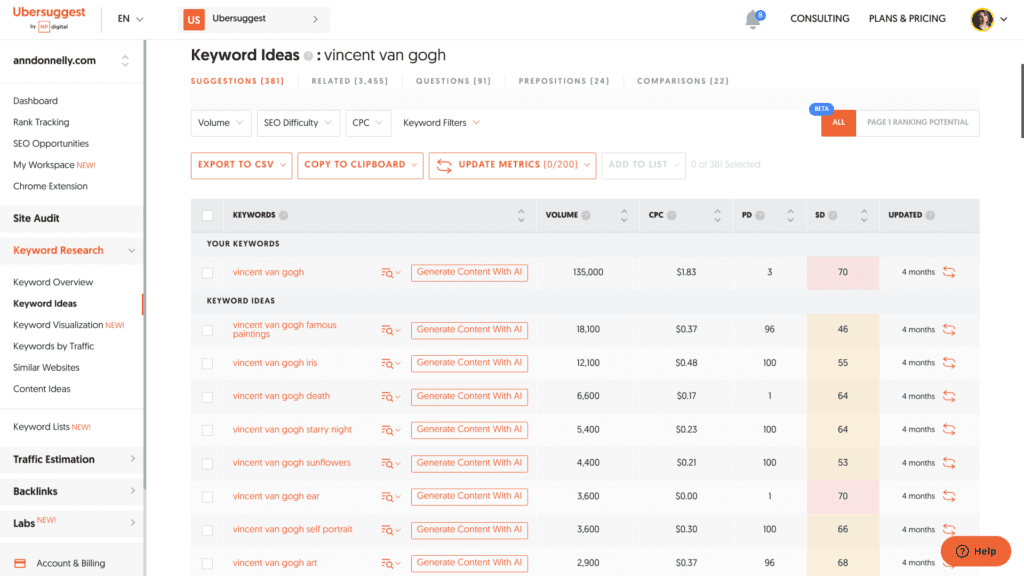
In Episode 27, we will discuss how to use these keyphrases to optimize your website and other digital channels.
Take action!
📍Use Moz or Ubersuggest to determine which keyphrases to target on your website’s homepage and other top-priority pages.
📍Then, email admin@placentric.com with your plan and get a quick evaluation.
If you enjoyed this article and found the information useful:
📍Click here to subscribe to the Next Level Success Newsletter, a weekly email for ambitious individuals looking to take their businesses to the next level with insights, advice, and how-tos from Ann Donnelly’s 40 years of business and marketing experience.
Have a chat with me to see how I can help you increase sales and grow your business:
Click here to visit AnnDonnelly.com and book a call.


